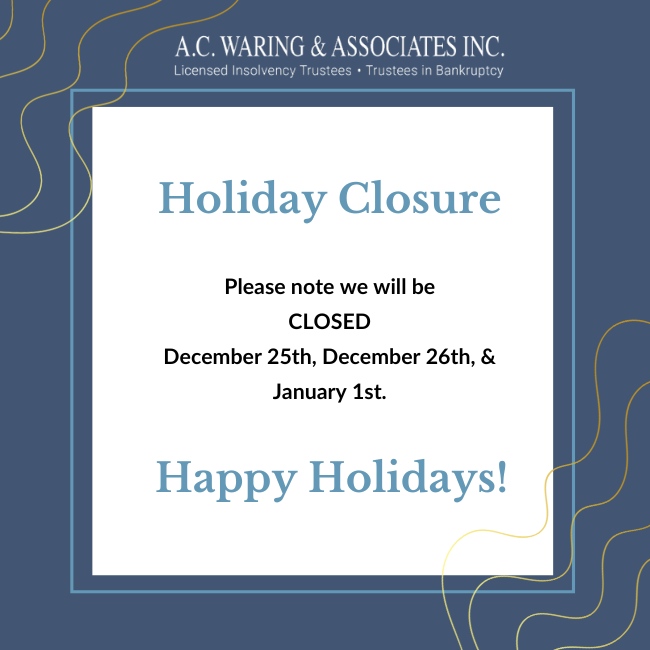Dealing with debt can feel overwhelming. You might be tempted to think of “overwhelming debt” as owing a large amount of money. Sometimes, though, meeting all of your minimum monthly payments to several different creditors can be a challenge even when the overall debt number is not that high. In cases like this, many debt experts will suggest debt consolidation as one option for making your debts more manageable.
What Is Debt Consolidation?
Debt consolidation loans involve getting a loan from a creditor and using that money to pay off several or all of your other creditors. You can think of debt consolidation as putting all of your debt into a single large “container” instead of leaving it spread over multiple containers.
Benefits of Debt Consolidation
- Simplified finances: Most people find it easier to manage a single monthly payment than several monthly payments.
- Lower interest rates: Depending on the types of debts you have, your debt consolidation option may have a lower interest rate than the debts you consolidated.
- Improved credit score: Making payments “on time and in full” on a debt consolidation loan will improve your credit score over time.
- Peace of mind: With a single consolidated debt, you will not have to worry about multiple debt collectors contacting you about outstanding payments.
Risks & Considerations
- Qualifying for debt consolidation: Many debt consolidation options require some kind of qualification process, like having a high enough credit score for personal loans, owning a home for a home equity loan, or having your creditors agree to a debt management plan.
- Fees and costs: Debt consolidation is not free. Loans and lines of credit used for debt consolidation still charge interest. Be sure to understand the terms of the loan, as it is possible to end up paying more interest overall than you would have paid on separate loans.
- Secured loans: If you use a secured loan or line of credit (like a home equity line of credit) to consolidate debts and are not able to keep up with the payments, you risk losing the collateral that was used to secure the loan.
- Behavioural risks: If a lack of budget discipline (like a tendency to live beyond your means) or financial literacy (not knowing the details of how debt works) contributed to your debt, debt consolidation will not solve those underlying problems.
Types of Debt Consolidation Options in Canada
There are several common options for consumers who are interested in debt consolidation.
- Personal loans and lines of credit: A personal loan is when a creditor makes a one-time loan with a fixed interest rate, based on the applicant’s income and credit rating. A line of credit is a revolving loan (one that the applicant can borrow from and repay repeatedly) with an interest rate that can vary over time, depending on market factors and your credit rating.
- Home equity loans/lines of credit: If you own a home, you can use home equity (the value of your home minus the balance of your mortgage) to secure loans and lines of credit.
- Credit card balance transfers: A credit card balance transfer allows you to transfer the balance of one credit card or loan account to another credit card. It effectively uses your credit card to pay off other loans. Credit card companies usually charge a fee to perform a balance transfer.
- Debt management plan: A debt management plan is when a credit counsellor negotiates an informal arrangement with your creditors on your behalf. This can sometimes allow you to consolidate your debts into a single monthly payment that you will make to the credit counsellor. However, creditors are not required to accept your debt counsellor’s offer, and the offer is not legally binding.

The Debt Consolidation Process: Step-By-Step
Assess Your Debt Situation
The first step to consolidating your debt is knowing your debt load (how much money you owe in total), your monthly budget (how much money you have available to pay your debts each month), and your credit rating. Whether you can access certain debt consolidation options will depend greatly on this information, which can shape your debt consolidation plans.
Research & Compare Options
To make a properly informed decision, you will want to explore your options in detail. Contacting an expert can make this stage much easier. Licensed insolvency trustees and credit counselling agencies are experts at helping people manage and pay off their debts. They can guide you through the details of the debt consolidation process and help you find a solution that fits your circumstances.
Apply for Debt Consolidation
Once you have decided which debt consolidation option is right for you, the next step is to apply. This might involve applying for a bank loan or line of credit, contacting your credit card company about a balance transfer, or speaking to a credit counsellor about a debt management plan.
Create Your Repayment Plan
Creating a sustainable repayment plan is the reason most people pursue debt consolidation. At this stage, you will use the information you gathered earlier about your debt load, credit rating, and budget, and match it with your chosen debt consolidation option to create a repayment plan you can stick with.
Frequently Asked Questions (FAQs)
What Types of Debt Can Be Consolidated?
Bills, payday loans, credit cards, lines of credit, and overdrafts are common types of debt that can be included in debt consolidation. Exactly which debts can be consolidated will depend on the provider.
Does Debt Consolidation Hurt Your Credit Score?
In the short term, consolidating debt through a debt consolidation loan can hurt your credit score by adding both a hard inquiry and a new line item to your credit report. However, the long-term benefits of making regular and timely payments on a loan can offset any damage.
How Long Does the Debt Consolidation Process Take?
Arranging a debt consolidation (collecting information, choosing the best option, applying for consolidation, and making your repayment plan) can take several weeks.
Can I Consolidate Debt if I Have Bad Credit?
Yes, but your options for consolidating debt will be more limited than for people who have good credit.
Your Next Steps Toward Freedom from Debt
Dealing with debt can be difficult, but it is not impossible. Strategies like debt consolidation can help make your debts manageable, and improve both your financial security and peace of mind.
If you are looking for help with debt consolidation, or for more information on other ways to deal with your debt, A.C. Waring & Associates Inc. is here to help. Contact us today!





